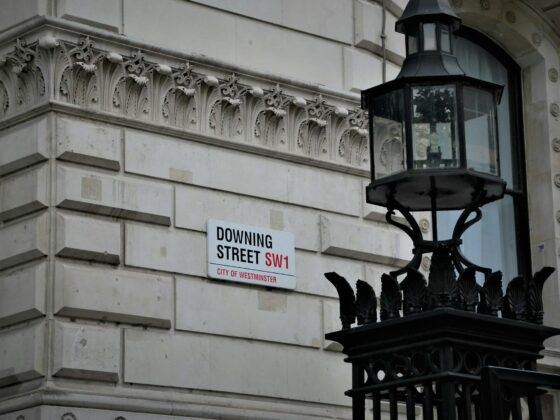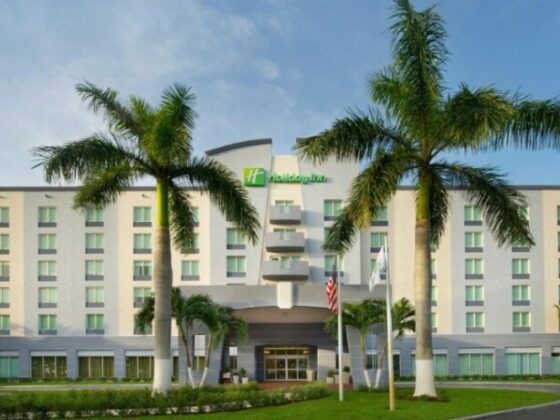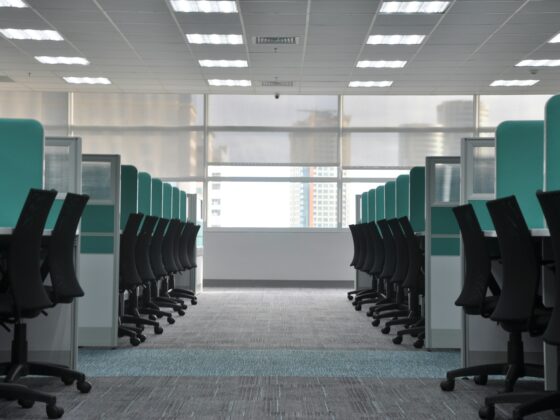
After Donald Trump was elected president for the second time, he called for levying 25% tariffs on imported goods from Canada and Mexico, as well as an additional 10% of tariffs on China. He originally tried to impose these tariffs via an executive order earlier this month in order to hold all three nations, “accountable to their promises of halting illegal immigration and stopping … drugs from flowing into” the United States.
Even though the tariffs on Mexico and Canada were put on hold for 30 days, the threat of a trade war with our nation’s North American allies has already sent U.S. markets reeling, as such heavy tariffs would likely accelerate inflation and lower gross domestic product, according to economic experts at the Peterson Institute of International Economics.
The tariffs on Chinese imports went into effect on Feb. 4, and more recently, Trump announced he will also be levying a 25% tariff on steel and aluminum, which experts say will raise grocery prices on items sold in steel and aluminum cans.
On Monday, Trump confirmed that the month-long suspension on the planned tariffs is wrapping up, with the president stating at a White House press conference with French President Emmanuel Macron that, “the tariffs are going forward on time, on schedule.”
According to a recent poll of 1,000 U.S. citizens by Numerator, 80% of consumers are concerned about the impact tariffs will have on their finances.
The restaurant industry is no exception to this period of economic uncertainty as the outcome of the potential tariffs (and in return, retaliatory tariffs that would be imposed by Canada and Mexico) hangs in the balance. Restaurant operators could see prices go up for anything from Mexican avocados to cans of soda and aluminum siding.
This week, the National Restaurant Association warned President Trump in a letter that the proposed 25% tariffs could cost the restaurant industry up to $12.1 billion, which would result in a 30% profit loss for the average independent restaurant operator.
“We urge you to exempt food and beverage products to minimize the impact on restaurant owners and consumers,” the association said in the letter. “This will help keep menu prices stable.”
Currently restaurants are in the middle of earnings season, and although the threat of tariffs have been mentioned in many earnings calls, most CEOs are declining to comment or predict headwinds if the tariffs went into effect. Chipotle said in its most recent earnings call that the company sources 50% of its avocado supply from Mexico, and the tariffs would have an impact of “60 basis points on the cost of sales,” according to Chipotle chief financial officer Adam Rymer. Chipotle executives and Shake Shack executives both said during their respective earnings calls that the companies would continue to diversify their supply chain from different companies and vendors to keep costs down.
Restaurants are at the tail end of a supply chain with the potential to be impacted by these tariffs at almost every step.
“If you’re an importer in the U.S., which then sells to a distributor, which then sells to a restaurant, you might think about how you can share the burden of the increase of cost,” David Lennarz, president of business development and operations for Registrar Corp., which assists companies with FDA compliance, said. “So, if you’re a U.S. company that’s hit with the additional cost from that 10% tariff on China, you’re going to try and negotiate a cheaper price with your Chinese supplier, who might be able to bring prices down by 5%. Then you’re willing to assume half of the cost of that 5% and you charge the restaurant chain 2.5% more, and then the restaurant might choose to raise prices by 1.5%. … It’s like a daisy chain of people being forced to raise their prices.”
Although avocados and coffee (when Colombian tariffs were originally being considered) have been the most talked-about foods at risk from Trump’s proposed tariffs, the restaurant industry has more at stake. A lot of other fresh produce is grown in Mexico, Lennarz said, and the country likely can’t be replaced by other origins (or U.S. locales) because many fruits cannot be grown year-round in temperate regions with cold seasons.
Even a lot of beef, pork, and equipment is raised or manufactured in Canada and Mexico. Although the United States produces nearly 20% of the world’s beef supply, according to experts, it would not be enough to make up for the effects of a trade war with North American allies.
“A lot of equipment is made in Mexico; Canada provides a lot of beef, hogs, and poultry, so we would see prices go up with all of those things,” Robert Handfield, a Bank of America professor of supply chain management at North Carolina State University, said, adding that prices are already increasing even without tariffs due to threats from droughts and avian flu. “A lot of ranchers are culling their herds because they can’t feed them, and it takes about six years to get your herd back up to normal sizes again, plus the bird flu is decimating the chicken stock.”
With the tariffs looming, suppliers have few options, but some international companies may choose to set up shop in the United States or elsewhere to avoid the heavy fiscal penalties. Restaurant operators have multiple options, which might include a combination of raising menu prices, leaning on “shrinkflation” of menu items to curb costs, or diversifying their supply, as Chipotle and Shake Shack have hinted.
“Sure, it might hurt Colombia, but it could benefit other coffee origins,” Lennarz said. “Colombia’s coffee exports might diminish because of that [potential] tariff, and if you’re a buyer of any volume of coffee, you’re going to go look at other origins, because most products are not produced in just one country. They key is to be prepared to pivot your supply chain as needed.”
Although most of the tariffs have not yet gone into effect, they are already impacting the market and the restaurant industry in unexpected ways. Lavae McClinnahan is the founder of Peninsula Hospitality Group, and he has been trying to open his latest restaurant, Montauk, in Redondo Beach, Calif., but has hit some setbacks because of how the potential tariffs are already impacting the building materials supply chain.
“We had an issue recently where the sign company we were using called us and said it was going to take three more weeks to get the sign because of the threats of tariffs,” McClinnahan said. “We’ve noticed the price of wood go really high, especially when we’re looking at buying Douglas fir, most of which comes from Canada. They quoted me $7,000 and now that quote is around $10,000.”
It should be emphasized, however, that even if they are already creating waves in the market, these tariffs have not yet gone into effect, and at least one financial expert thinks they might not in their proposed 25% form.
“I think we’re going to see a lot of prices continue to go up regardless of tariffs,” Handfield said. “I really don’t believe that the tariffs are going to go through — I think Trump is bluffing. He’s playing poker, with these two countries, … There’s no stability right now, and the business world hates instability.”
Contact Joanna at [email protected]









